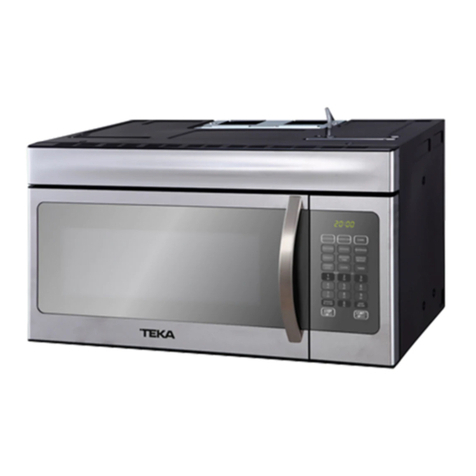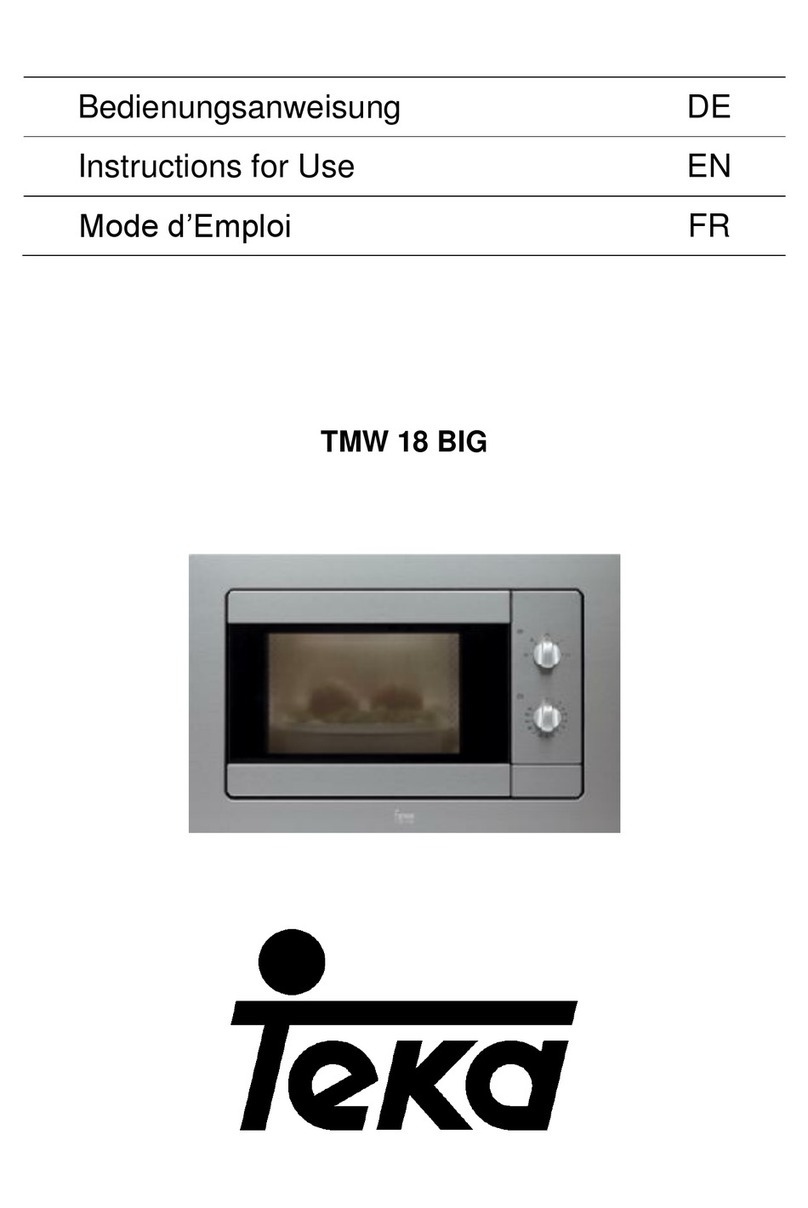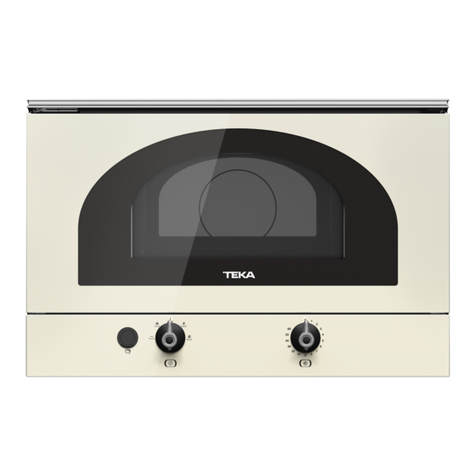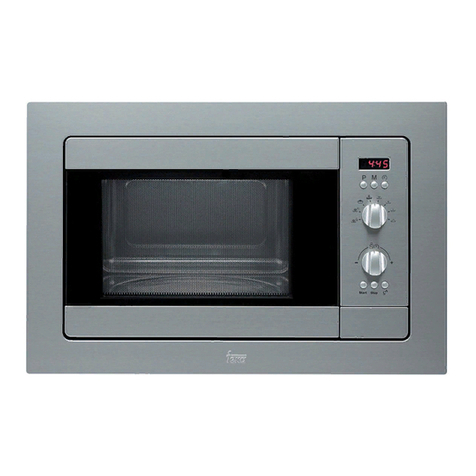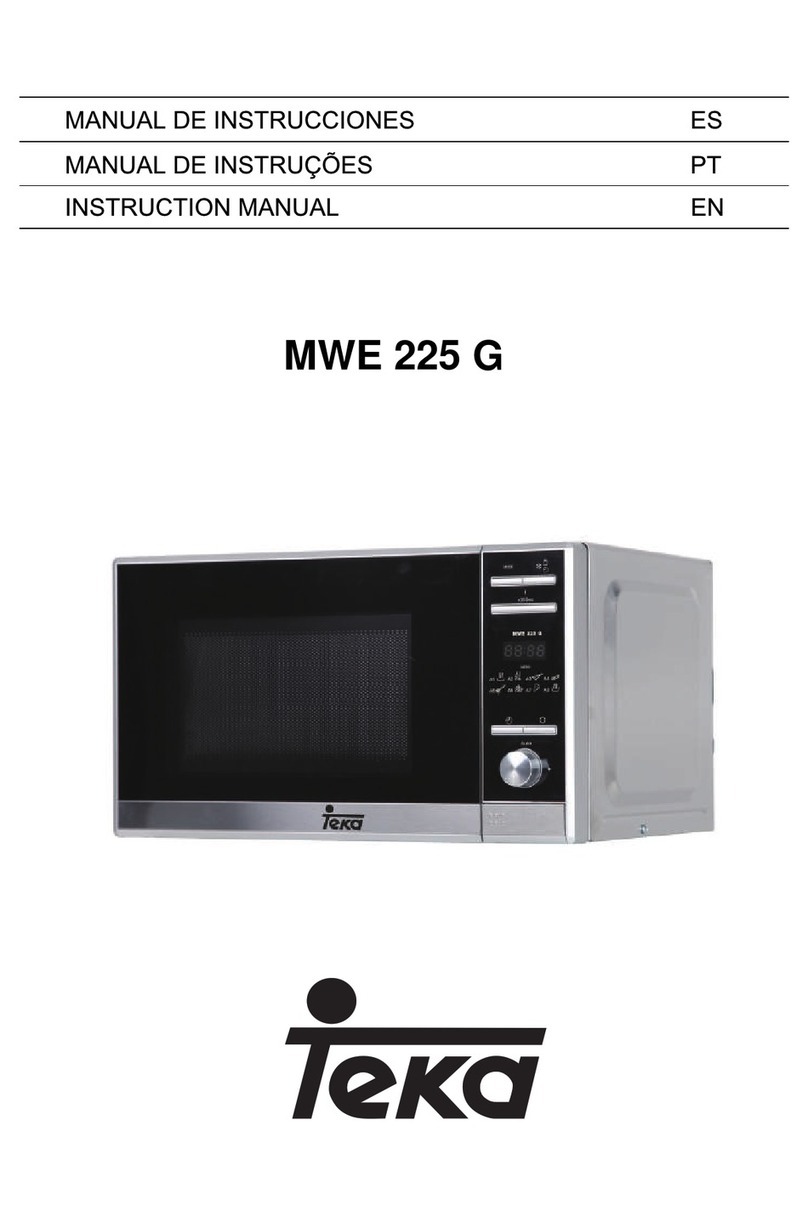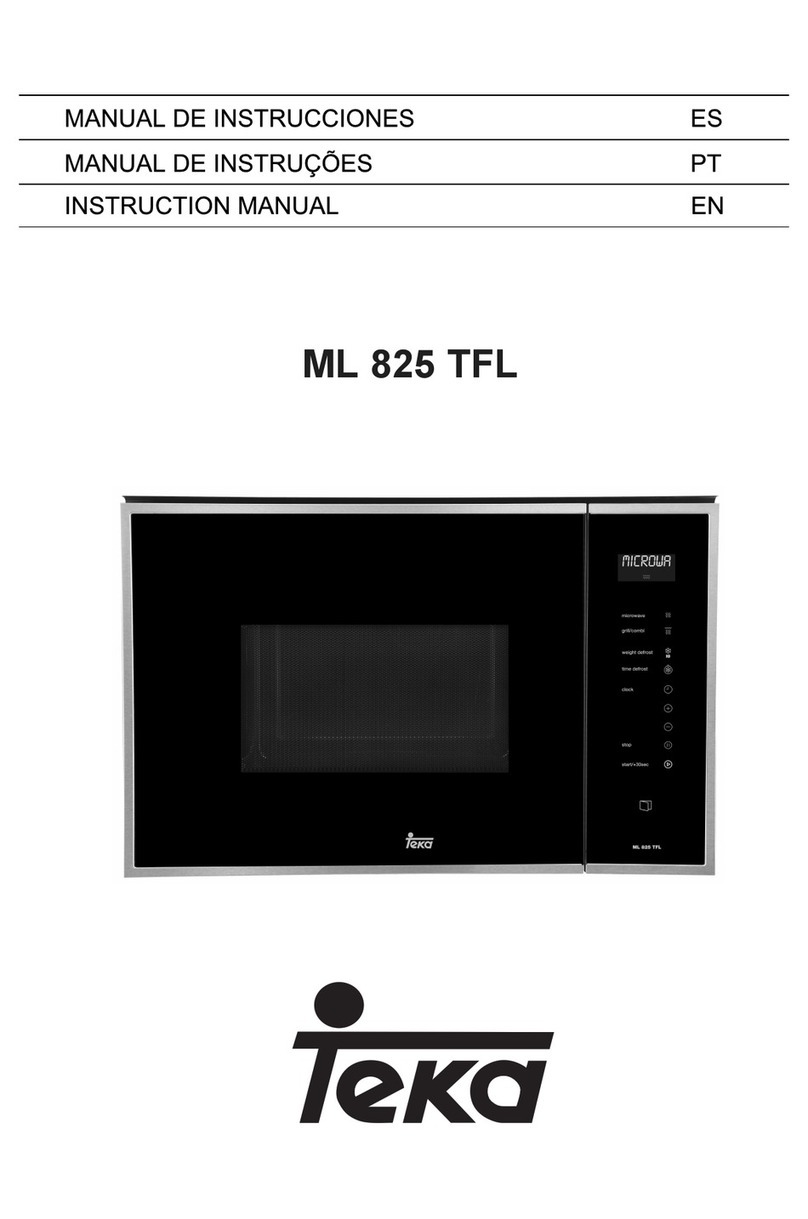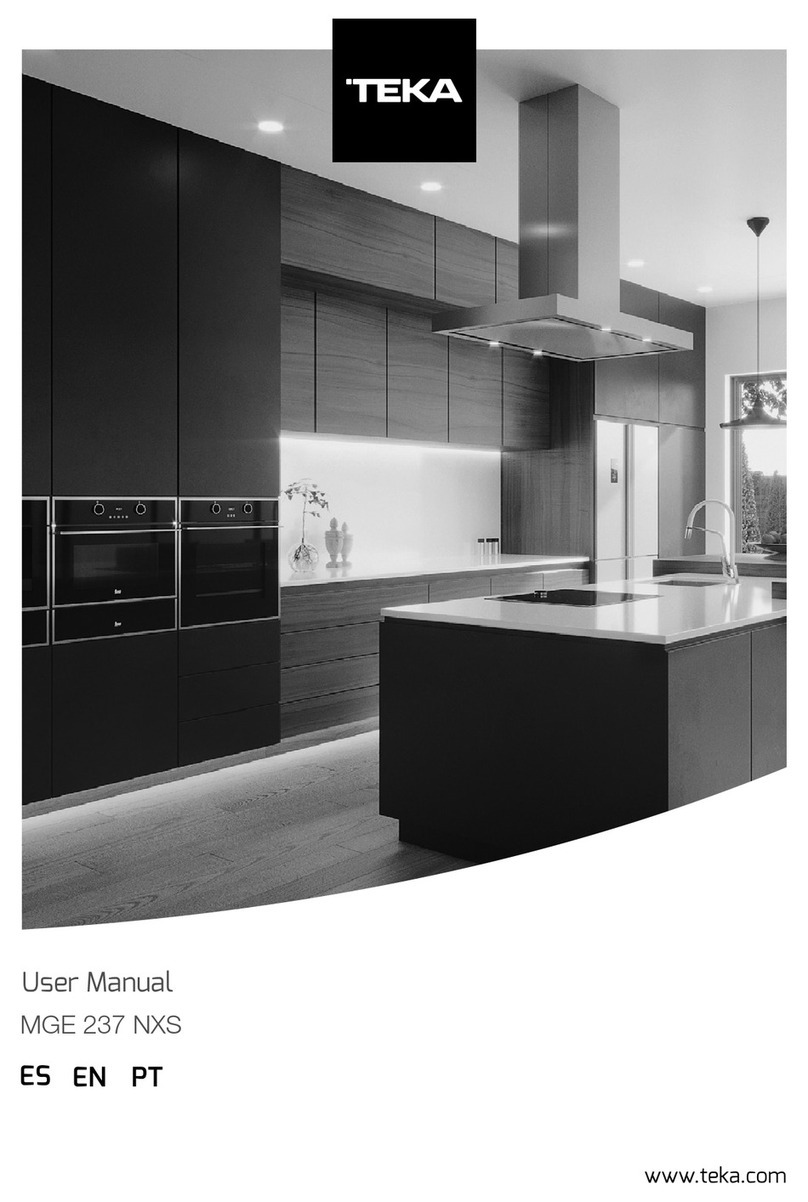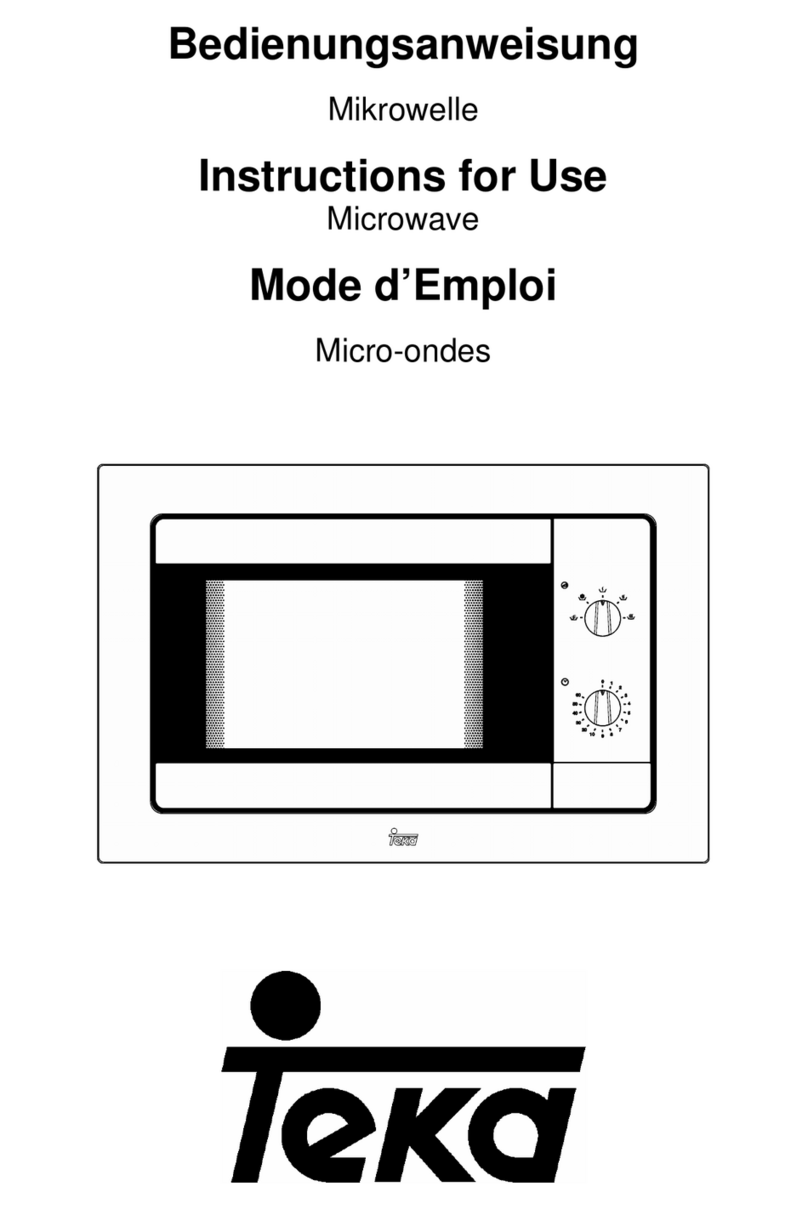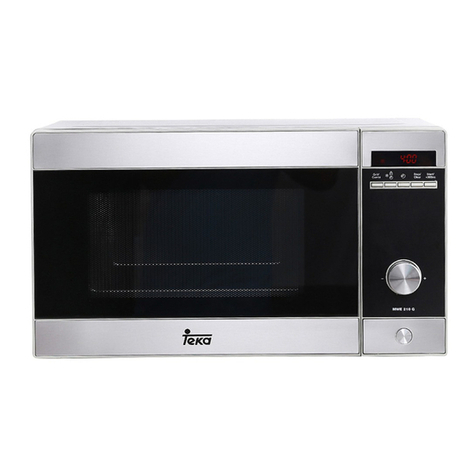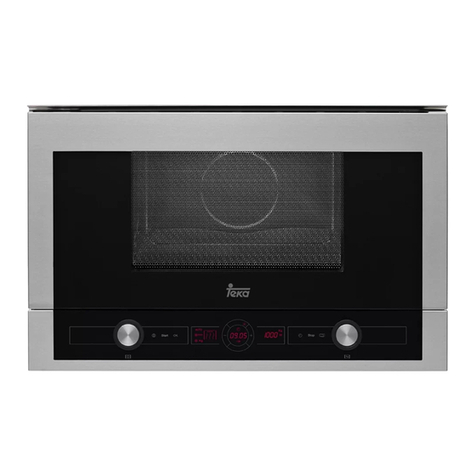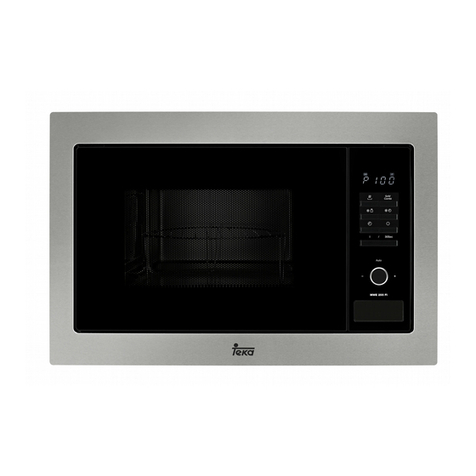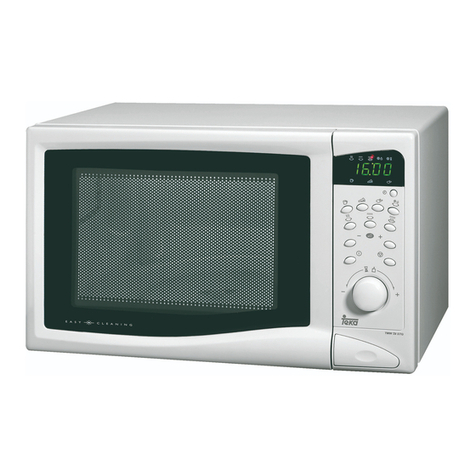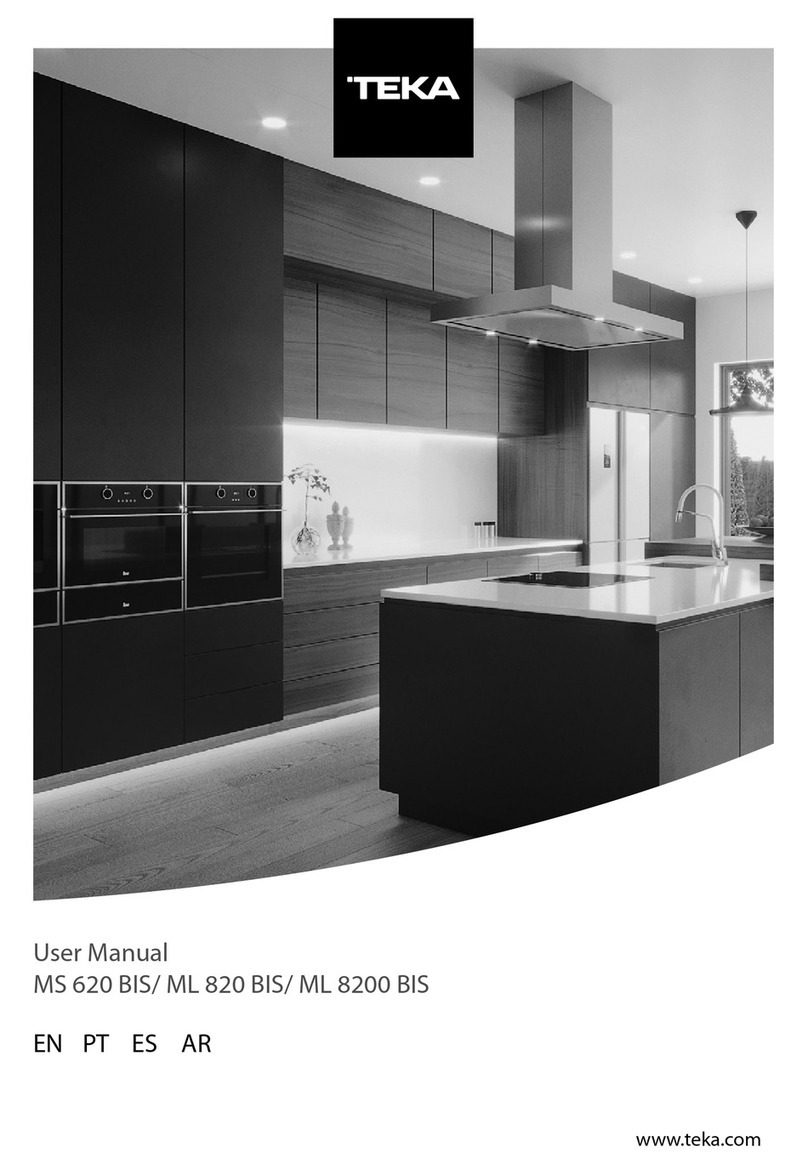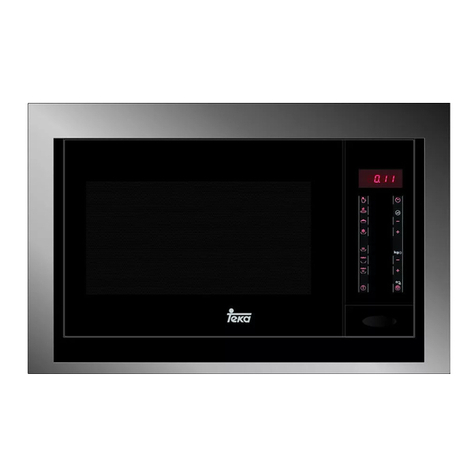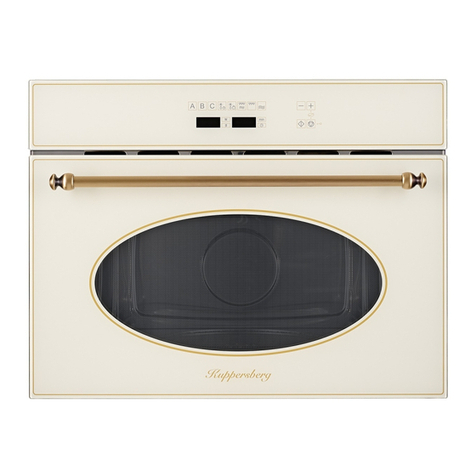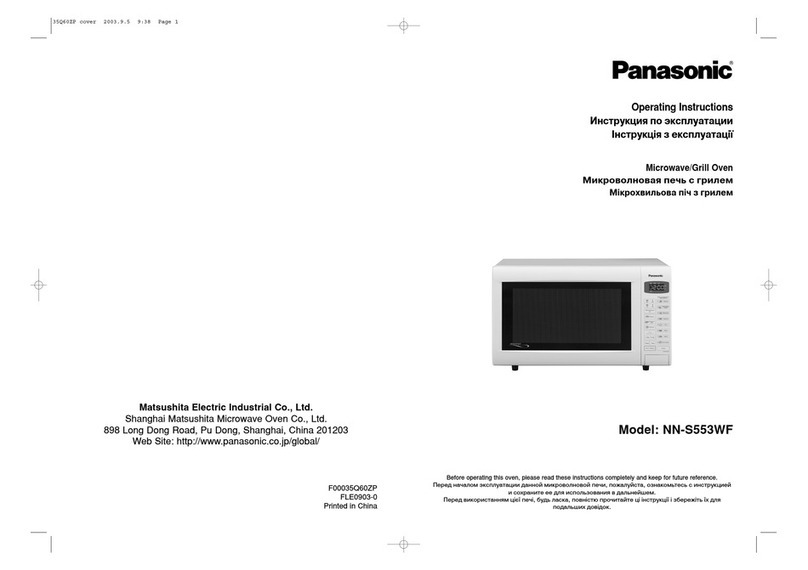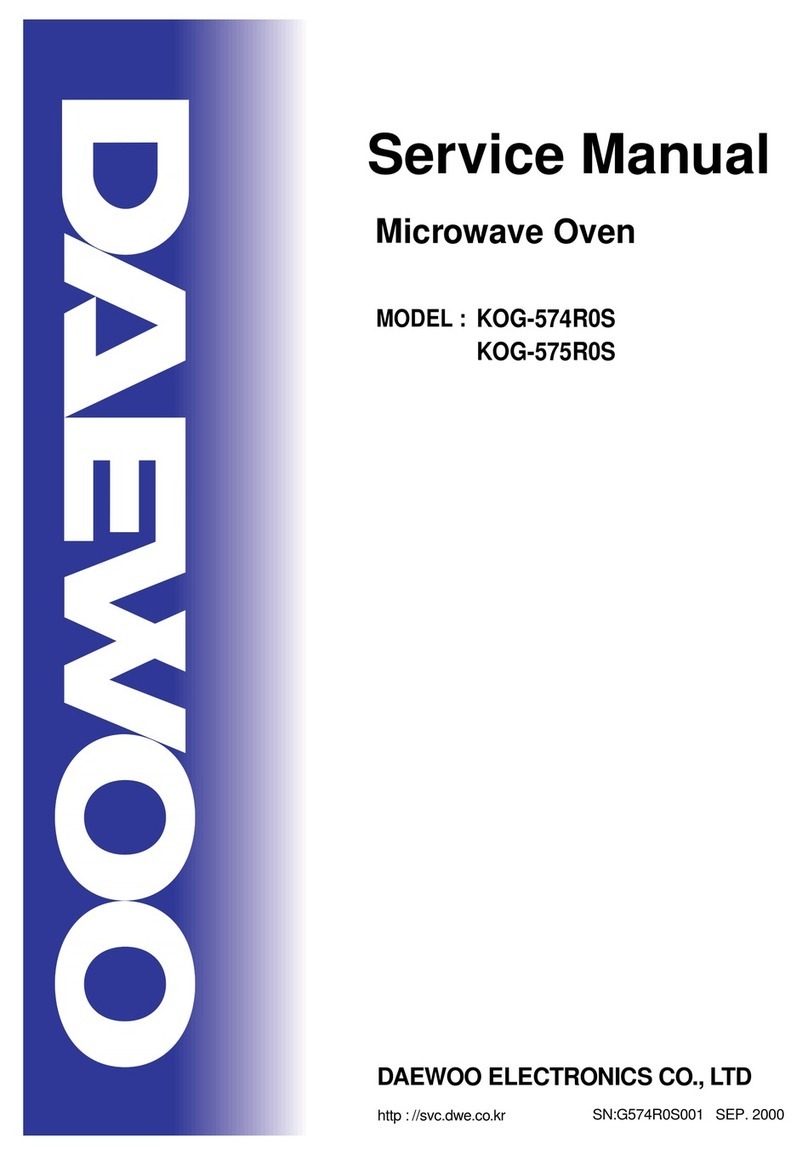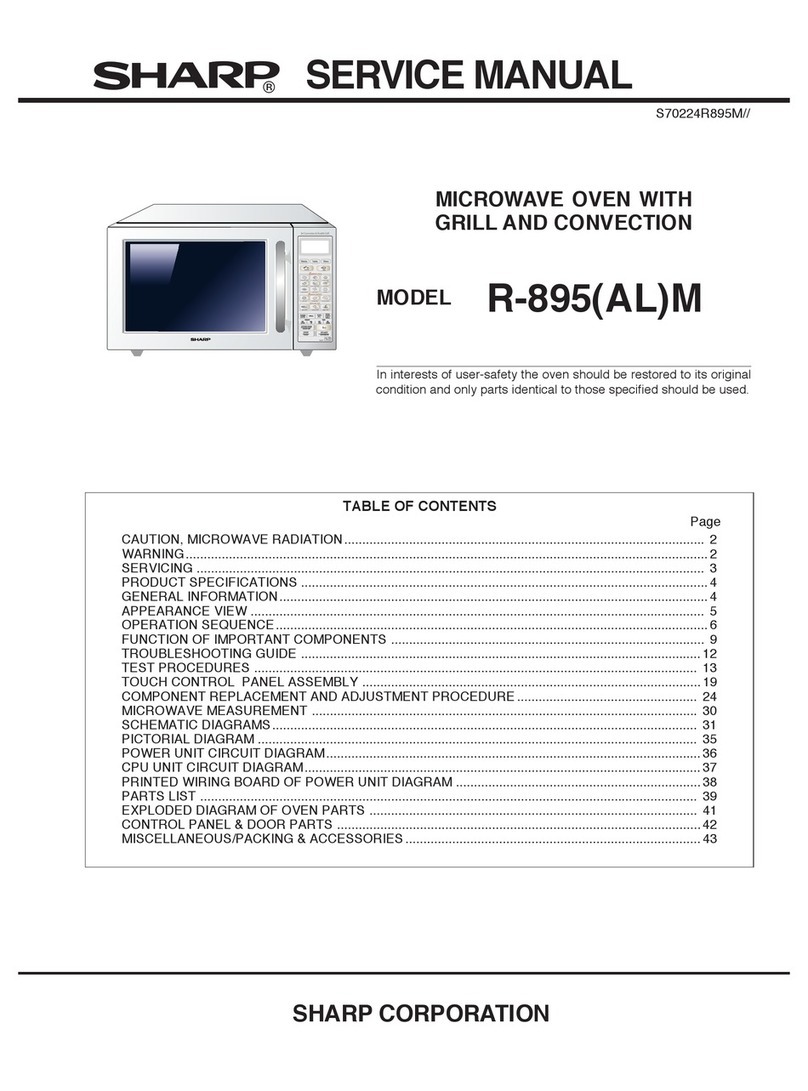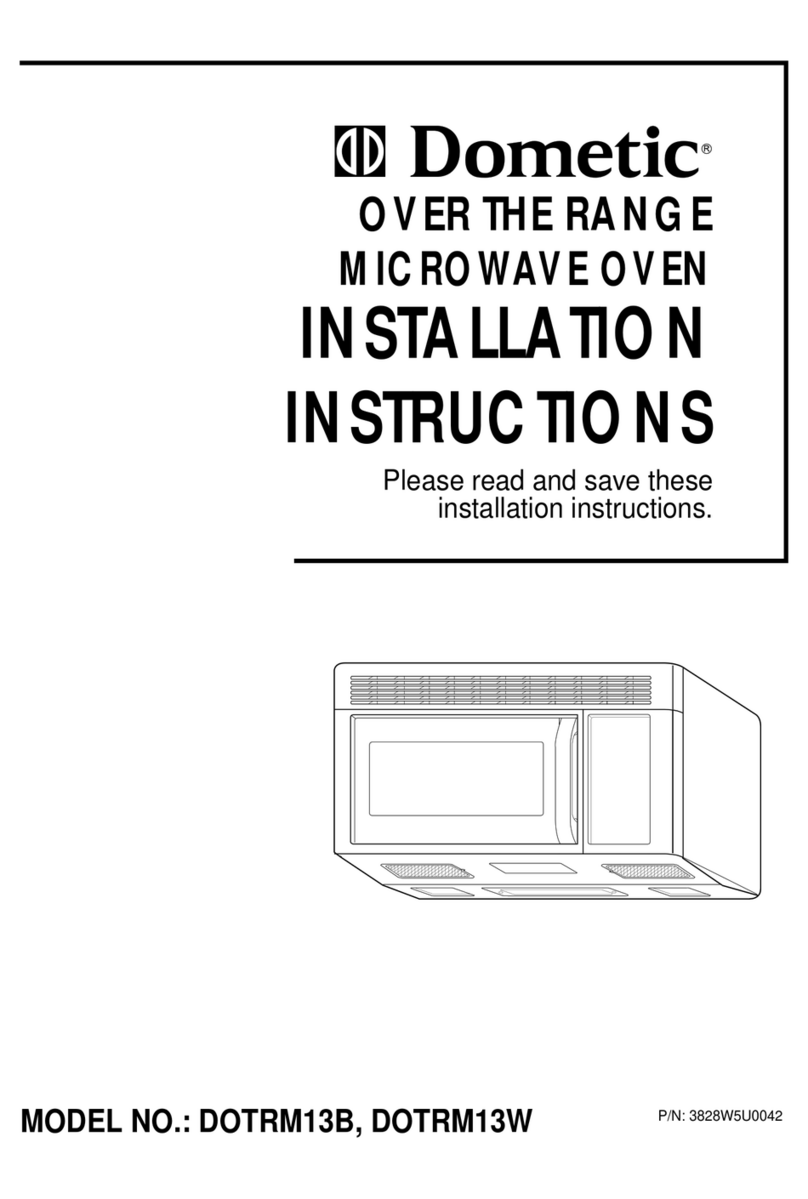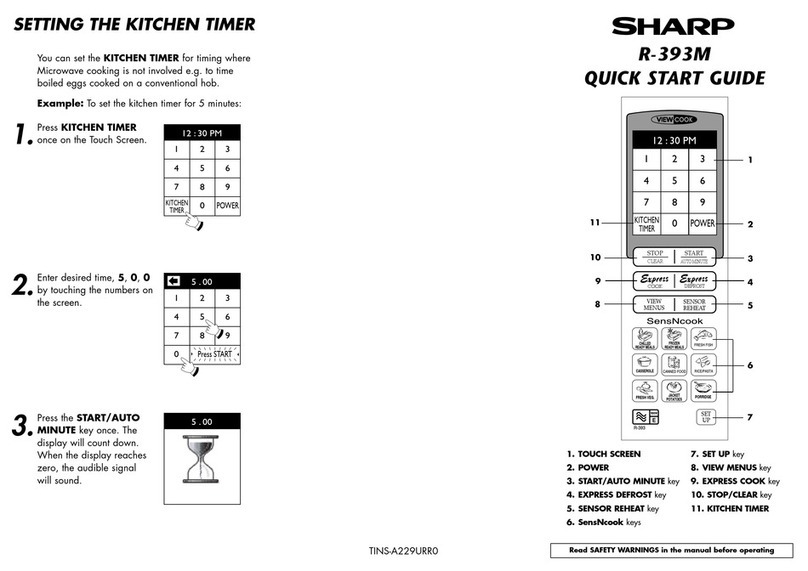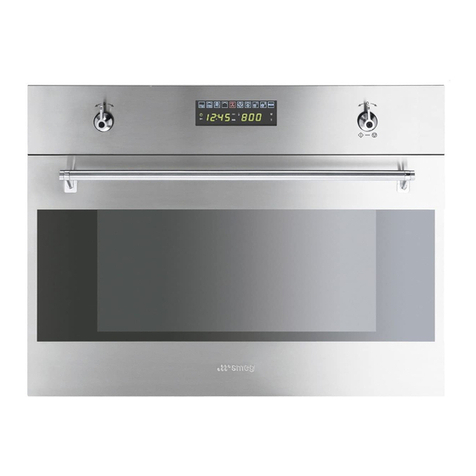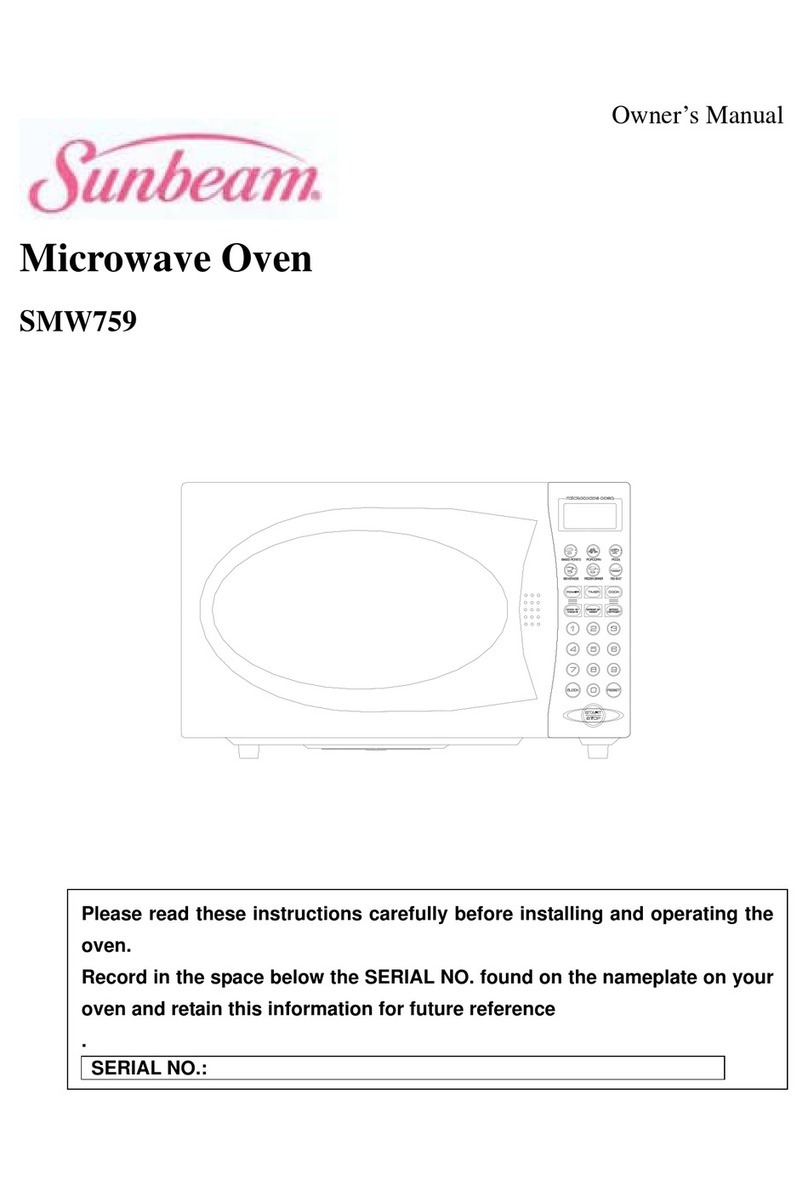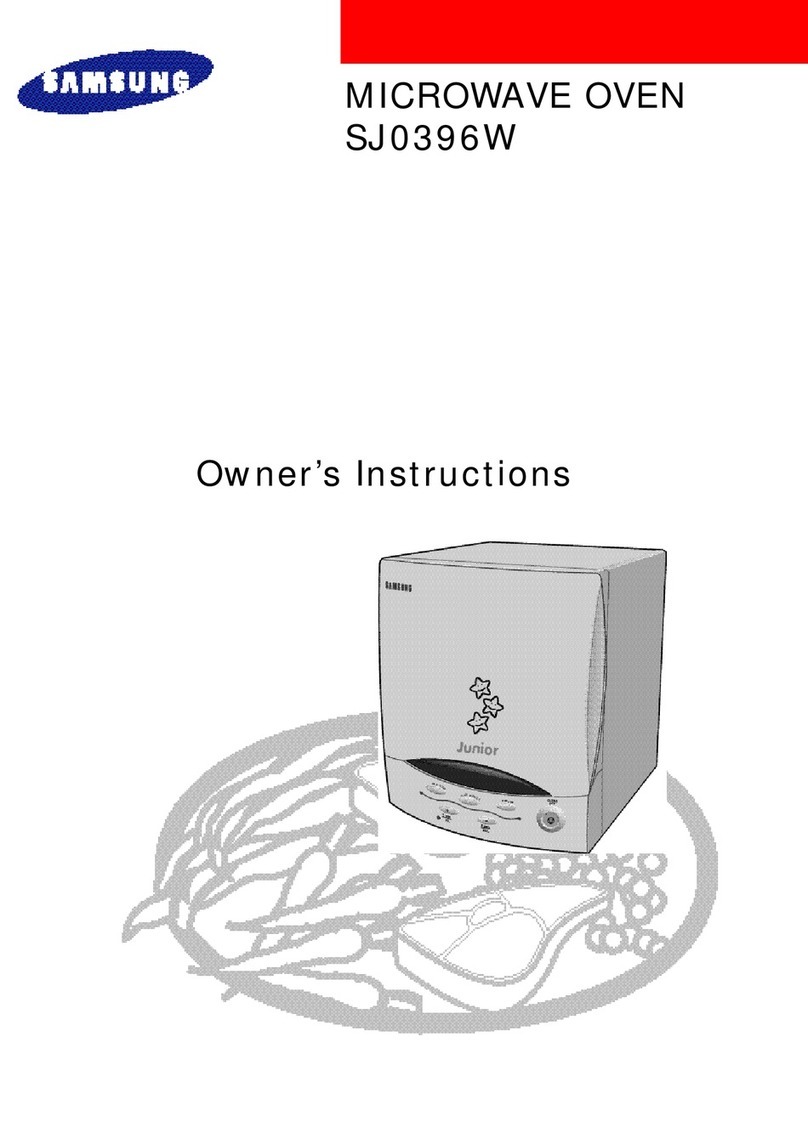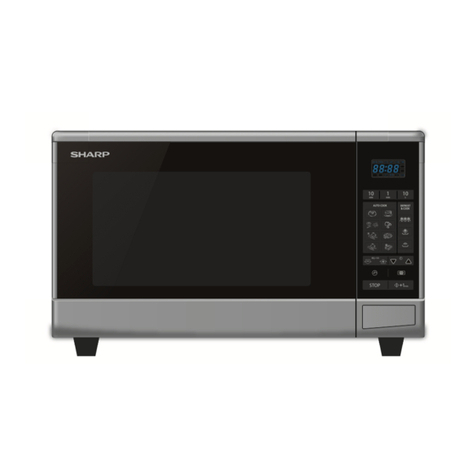
3
Contents
Safety Information ...................................4
Children and Vulnerable People Safety.4
General Safety.......................................5
Installation.............................................7
Cleaning and Maintenance....................7
Service and Repair................................8
Avoid damaging the oven or other
dangerous situations by following these
instructions............................................8
Advantages of the microwave oven.......10
Microwave oven operating mode..........10
Why the food is heated .........................10
Description of the appliance...................11
Control Panel.........................................12
Description of functions ........................12
Basic settings...........................................13
Setting the clock ...................................13
Safety lock.............................................13
Basic functions ........................................14
Microwave.............................................14
Quick Start ............................................14
Function: Grill........................................14
Microwave + Grill ..................................14
Defrosting by weight (automatic)...........15
Defrosting by time (manual)...................15
pecial functions........................................16
Special function: Auto1 (cook 500g
potatoes) ...............................................16
Special function: Auto 2 (slow boiled /
stewed dishes) ......................................16
Special function: Auto 3 (mashed potato)
..............................................................16
Memory Function...................................16
Memory storage procedure...................16
Memory use procedure .........................16
Delete a Memory ...................................17
During operation... ...................................17
Function interruption .............................17
End of programme.................................17
What type of containers may be used?..17
Microwave function...............................17
Test the dishes......................................17
Grill function ..........................................18
Combined function................................18
Aluminium containers and foils..............18
Lids........................................................18
Table dishware....................................18
Cleaning and care....................................19
Outer surface.........................................19
Inside.....................................................19
Door, door-hinges and front of the
appliance...............................................20
Mica covers...........................................20
Troubleshooting.......................................20
Technical Features ..................................21
Specifications........................................21
Environmental protection........................21
Installation instructions...........................21
Installation................................................86
